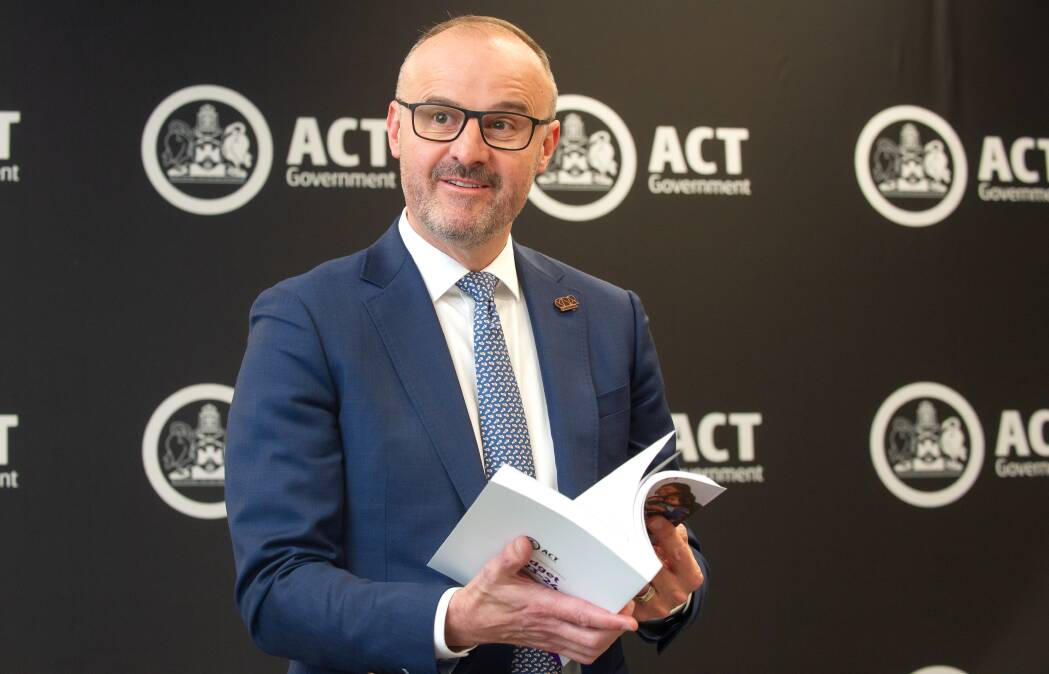The ACT faced an $81 million budget black hole in the September quarter, after the territory raised less revenue than it anticipated.
The drop in revenue was mainly due to lower-than-expected goods and services tax revenue from the Commonwealth and lower payroll tax.
But the drop was partially offset by $35.6 million in savings across government spending, including a $12.1 million saving on cheaper-than-expected insurance claim expenditure.
Higher interest rates delivered the government an extra $12.2 million.
The government also saved $10.2 million on interest, due to the timing of projected borrowings, and $13.9 million due to lower grants and purchased services.
However, government wages, which make up 36 per cent of overall spending, were $2.8 million higher than budgeted.

The figures were revealed in the ACT's quarterly financial report, tabled in the Legislative Assembly by Chief Minister Andrew Barr last week.
The year-to-date surplus in the September quarter was $351.2 million, which was $40 million lower than budgeted for the same period.
The ACT budget, released in June, showed the deficit would fall to $442.7 million in 2023-24 and return to surplus in 2025-26.
The budget forecast growth from GST revenue as a result of recalibrating the way the territory's share is calculated.
Commonwealth grants - which include the goods and services tax payments - make up 32 per cent of government revenue in the ACT.
Taxes raised by the ACT government - including rates and duties - make up 52 per cent of government sector revenue in the territory.
Federal Treasurer Jim Chalmer was last week told by his state and territory counterparts to permanently guarantee that none will be left worse-off under the GST sharing deal struck by the Morrison government with Western Australia in 2018.
The no-worse off guarantee is supposed to end after a six-year transition period ends in 2026-27.
The ACT was stripped of its AAA credit rating by S&P Global in September. The international credit rating agency noted the territory's slower-than-expected budget recovery but said the economy remained strong, with solid prospects for growth.
Asked in question time earlier this year if the government would attempt to regain a AAA credit rating, Mr Barr said: "The retention of our AA-plus credit rating with a stable outlook is consistent with the current budget position.
"Returning to AAA would require, as Standard & Poor's have observed, surpluses over the forward estimates and a reduction in the total level of debt."







